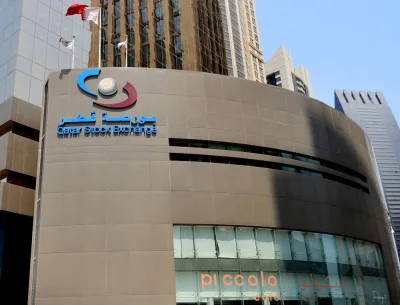Amid record demand for sustainable finance to fund increasingly specific ways of mitigating climate change, globally, more than $41tn is now estimated to be invested using “environmental, social, and governance” (ESG) analyses.
With Qatar attaching great importance to sustainable development, the country has long advocated an inclusive doctrine that envisages a forward-looking medley of environment friendly policy framework, social progress and economic growth with acceptable governance.
And the Qatar Stock Exchange (QSE) is now aiming to turn Doha into a global hub for ESG investors.
Green bonds, sukuk and ESG funds issued by Qatar are soon expected to be in place as the country is “primed” to take advantage of the trend of carbon reduction target, according to a top official of the Qatar Financial Centre.
With Qatar Petroleum’s aggressive green investments, the QSE’s guidance on ESG reporting, and the QFC’s institutional backing, there is a strong likelihood Qatar-issued green bonds, sukuks and ESG funds will be launched shortly,” Thaddeus Malesa, senior adviser for Economics and Research, QFC Authority, said recently.
In the Gulf, the QSE has been a pioneer in promoting practices that underpin sustainable investment metrics.
In 2016, the bourse joined the United Nations initiative on sustainable development (SSEI). Since then, it has undertaken the promotion of ESG standards.
Next year, the QSE introduced ESG guidelines for voluntary inclusion in listed firms’ existing reporting processes.
In 2018, the QSE launched the first sustainability platform in the region to encourage listed companies to disclose their reports on sustainable development.
The QSE is now developing a sustainability benchmark index vis-à-vis the country’s promising potential to be an ESG hub.
More broadly, the Qatar Investment Authority in 2017 became one of six founding members of the ‘One Planet Sovereign Wealth Fund Initiative’, which is fitting climate change into financial decision making.
Across the Gulf, the ESG bandwagon is cruising up.
Saudi Arabia’s sovereign wealth fund, the Public Investment Fund, has hired five international banks as members of an ESG panel for its medium-term capital-raising strategy, according to IFR News.
The government of Oman is reportedly working on an ESG framework which could allow the Sultanate to widen its funding base.
And Boursa Kuwait has launched its new ESG guide to raise awareness and factor in corporate sustainability in the Kuwaiti capital market.
Make no mistake, investor demand for ESG products is surging.
Governments, corporations, and other groups raised a record $490bn last year selling green, social, and sustainability bonds. A further $347bn poured into ESG-focused investment funds: An all-time high.
Moody’s Investors Service expects sustainable-debt issuance to reach $650bn this year, while money flows to ESG funds show no signs of slowing.
BlackRock, has put its $8.7tn heft behind a powerful message: The decades ahead will be defined by minimising emissions, requiring an overhaul to everyone’s business models.
Given the greater awareness of ESG and the way information travels across social media, companies are learning that the rise of “S” in ESG means that bad behaviour can be increasingly expensive.
Going forward, the QSE is working to cement its ESG lead in the Gulf amid record demand for sustainable debt investments across the financial world.

Viewpoint


